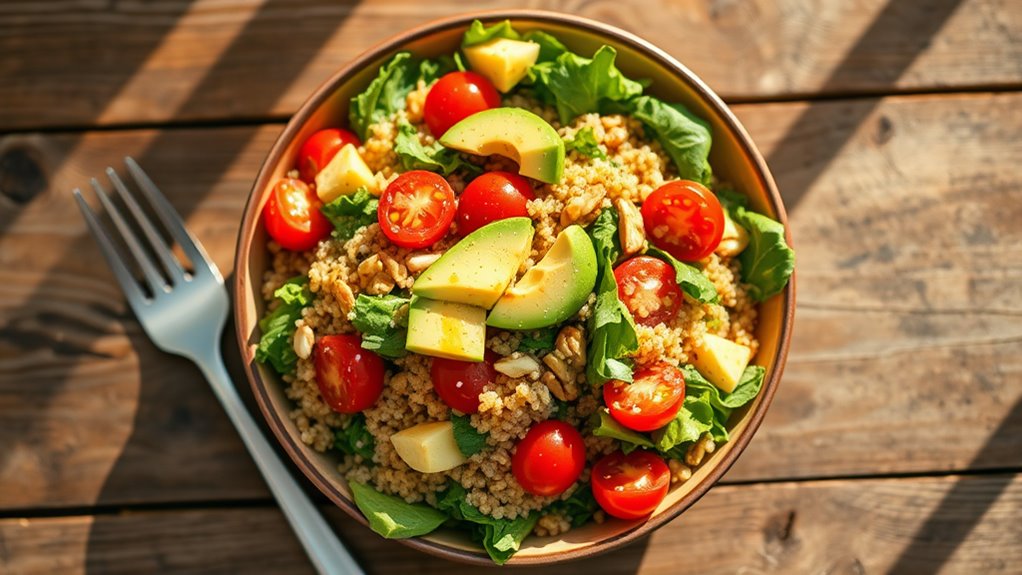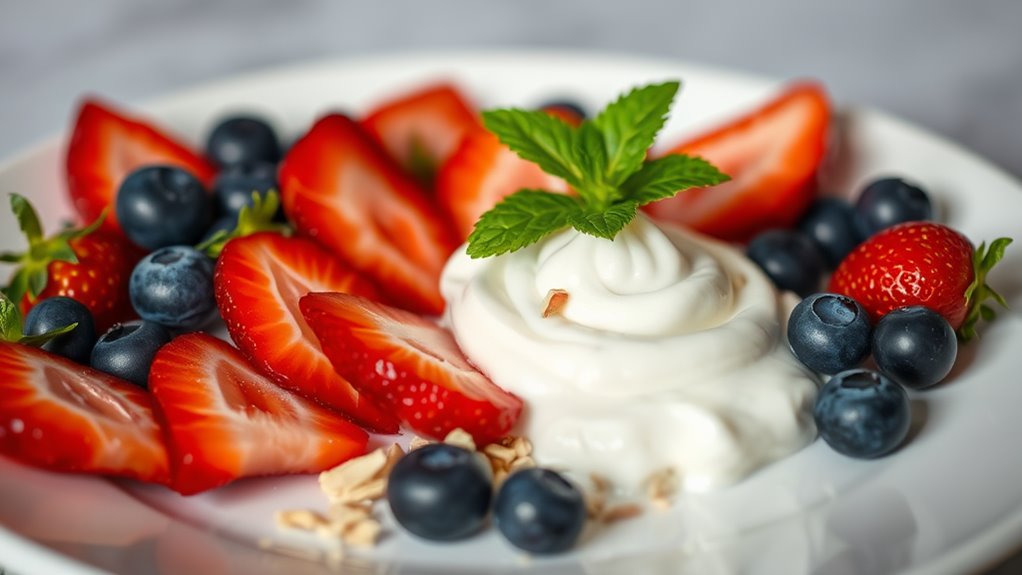Psychological Triggers Behind Food Desires
What drives your cravings beyond just physical hunger? Often, it’s your emotions and environment that play a significant role. You might reach for comfort foods when you’re stressed or celebrate with snacks during happy moments. These psychological triggers can create strong associations between feelings and food, leading to cravings that aren’t about nourishment but about connection and comfort. Staying hydrated can help reduce the likelihood of unhealthy snacking, as dehydration can cause the body to confuse thirst with hunger.
| Trigger | Effect on Cravings |
|---|---|
| Stress | Increases desire for high-calorie foods |
| Social Events | Encourages sharing and indulging in treats |
| Nostalgia | Sparks cravings for childhood favorites |
Understanding these triggers can help you recognize when you’re eating for reasons beyond hunger. By being mindful, you can foster healthier relationships with food and find a sense of belonging in your choices.
The Influence of Lifestyle Habits on Appetite
Though you mightn’t realize it, your daily habits significantly shape your appetite and food choices. What you eat, how much you move, and even your social interactions can all influence how hungry you feel.
For instance, if you often skip meals or rely on quick snacks, your body may start craving more food, leading to unhealthy choices.
Being part of social gatherings can also impact your eating habits. When everyone around you indulges, you might feel pressured to join in, even if you’re not truly hungry.
On the flip side, staying active can help regulate your appetite. Regular exercise boosts your metabolism and can help you make better food choices. Additionally, practicing meal planning can aid in reducing unhealthy snacking and support your journey towards better eating habits.
Paying attention to your lifestyle habits can help you cultivate a healthier relationship with food. You’re not alone in this journey—many people face similar challenges, and together, you can foster positive changes.
How Sleep Affects Hunger and Cravings
When you don’t get enough sleep, your body can throw a wrench into your hunger cues and cravings. Lack of sleep disrupts the balance of hormones that regulate appetite, particularly ghrelin and leptin. Ghrelin, which signals hunger, increases, while leptin, which tells your brain you’re full, decreases. This imbalance can leave you feeling hungrier and craving unhealthy foods, making it harder to stick to your nutrition goals.





